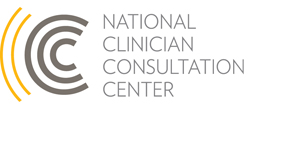Case of the Month: Pending HIV Test Results and Labor
Case Summary
A pediatrician asked about a Gravida 3, Para 1 woman (age unknown) at 39 weeks gestation who was admitted for induction of labor due to gestational diabetes mellitus. The woman‘s male partner of 12 years was HIV+ and taking antiretroviral medications with an undetectable viral load. The patient reported that her last sexual contact with the partner was at the time of conception, out of concern for HIV risk to the baby during pregnancy. The woman had tested negative for HIV about 8 months prior and 1 month prior to admission. A rapid HIV test result was pending at the time of the consultation call. The patient stated that she was not having acute HIV symptoms. Should the induction of labor be delayed to allow for a definitive rule-out of HIV in the mother?
CCC Consultant Advice
In this scenario, risk is very low, even if the mother was sexually active with her HIV+ partner during pregnancy. As the partner is virologically suppressed, the risk of sexual transmission is decreased by approximately 96%. Since the induction is non-emergent, it may be reasonable to send an HIV viral load immediately to definitively rule out acute HIV and to delay the induction until results are obtained. However, if the mother is very clear she has had no risk behavior during the window period, and everyone is confident with this, the induction could continue as scheduled. It should be documented clearly that the mother was offered an HIV viral load test prior to the induction and that it was declined.
For more information on HIV testing and pregnancy:
4th Generation HIV Testing and Pregnancy Guide (note: this link is no longer active)
CCC HIV Testing FAQ
Current USPHS Perinatal HIV Guidelines
Because CCC consultations are based on information provided by the caller or clinician accessing the online consultation center, without the benefit of a direct evaluation or examination of the patient, consultations are intended to be used as a guide. They do not constitute medical advice and are not to serve as a substitute for medical judgment. This Case of the Month includes consultation based on the most up-to-date evidence at the time of its publication. To learn about current recommendations, please call one of our clinical consultation lines.
 University of California, San Francisco |
University of California, San Francisco |
